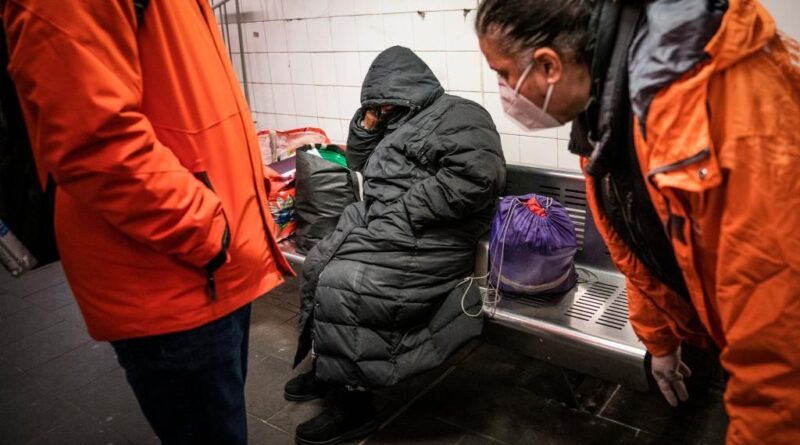In order to end Midtown chaos, NY must reinstate involuntary commitment

City Councilman Erik Bottcher’s refusal to accept the current situation is commendable, as people afflicted with untreated mental illnesses and substance abuse are suffering and dying on the streets.
In a recent letter to Mayor Adams, Bottcher, a Democrat representing Manhattan’s West Side from Greenwich Village to Times Square, highlighted the dire and heartbreaking chaos in his district caused by unchecked mentally ill and drug-addicted individuals flooding the area.
The issues described in Bottcher’s letter and recent New York Post articles reflect the ongoing struggles faced in the Times Square area for years. Bringing attention to this problem is crucial in finding long-term solutions.
While crime rates have decreased in Times Square and the Garment District due to the efforts of the mayor, the NYPD, and the Manhattan DA, the deteriorating conditions continue to plague residents and visitors. Enforcement alone cannot solve these complex issues; legislative changes are necessary.
Public intoxication, sleeping on benches, and panhandling, among other behaviors depicted in The Post’s stories, are problematic but not necessarily illegal. The decriminalization of lower-level offenses by the city and state has led to disorderly conduct on the streets, parks, and plazas.
A balanced approach is needed to address these challenges, involving state and city lawmakers, outreach workers, mental-health professionals, and communities in developing new regulations to aid those in need while enhancing the quality of life for all.
Efforts by the mayor, District Attorney Alvin Bragg, and Gov. Hochul to address the crisis through dedicated outreach teams and support services have shown some progress. However, barriers persist due to policy limitations that prevent effective assistance to those in need.
The Supportive Interventions Act proposed by the mayor aims to make sensible changes to state mental health laws to facilitate involuntary treatment for individuals who lack awareness of their mental illness. This bill could provide much-needed support for the community members suffering from mental health issues in Midtown.
It is time for society to come together, challenge biases, and implement evidence-based solutions to help those struggling with mental illness and substance abuse on the streets. The Supportive Interventions Act is a step in the right direction to address this crisis and save lives.
Barbara Blair, president of the Garment District Alliance, and Tom Harris, president of the Times Square Alliance, emphasize the importance of taking action and working collaboratively to improve the well-being of all New Yorkers.



